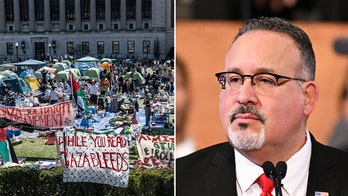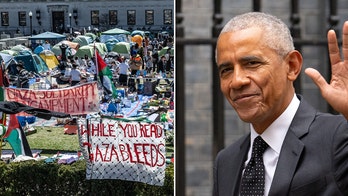'Fiscal cliff' threat unsettling small business owners
Mike Emanuel reports from Washington, D.C.
While Washington remains transfixed by campaign season, many small business owners are expressing anxiety about lawmakers' failure to address an urgent problem -- the looming hammer of tax hikes and spending cuts known as the "fiscal cliff."
The Bush-era tax rates, along with popular deductions and tax credits, are scheduled to lapse at the beginning of next year, coinciding with the first phase of spending cuts triggered by last year's debt deal. They add up to a roughly $600 billion hit.
And that has businesses, already weathering a cruel economic recovery, nervous.
"I want to grow. I want to invest back in the community and I'm just holding things back just because of the uncertainty," said Fast Signs franchisee Clint Ehlers.
A survey by the National Association of Manufacturers (NAM) and the National Federation of Independent Business (NFIB) reveals 55 percent say federal regulations, taxes, government spending and the cost of health insurance have hurt the economy and their businesses.
And more than two-thirds say there is too much uncertainty to expand or hire new workers.
"Small businesses are on the sidelines and clearly not inclined to invest now at least until they see what will happen between now and the end of the year," NFIB CEO Dan Danner told Fox News.
Experts say it is about risk and reward, and business owners are not going to gamble their money when they have no idea what the government might impose.
"If we don't maintain the current tax rate or if there isn't some type of tax reform, what this means is we'll have to pull back because it hurts our budgets. That means we'll have to stop hiring," Melanie Bergeron, of Two Men and a Truck, said.
House Speaker John Boehner has noted the House passed a bill to replace the automatic spending cuts, and would like to extend all of the Bush tax rates for a year to allow time for Congress to work on comprehensive tax reform.
Before leaving Washington, Senate Majority Leader Harry Reid focused solely on extending the tax rates for the middle class, though not for top earners.
"I'm confident that we will reach some kind of an arrangement. I think we can avoid a cut-off for the help that 98 percent of Americans deserve," said Reid.
Congressional sources say the way the fiscal cliff stand-off is resolved will largely be based on who wins the election. That party would have the leverage as the deadline nears.





